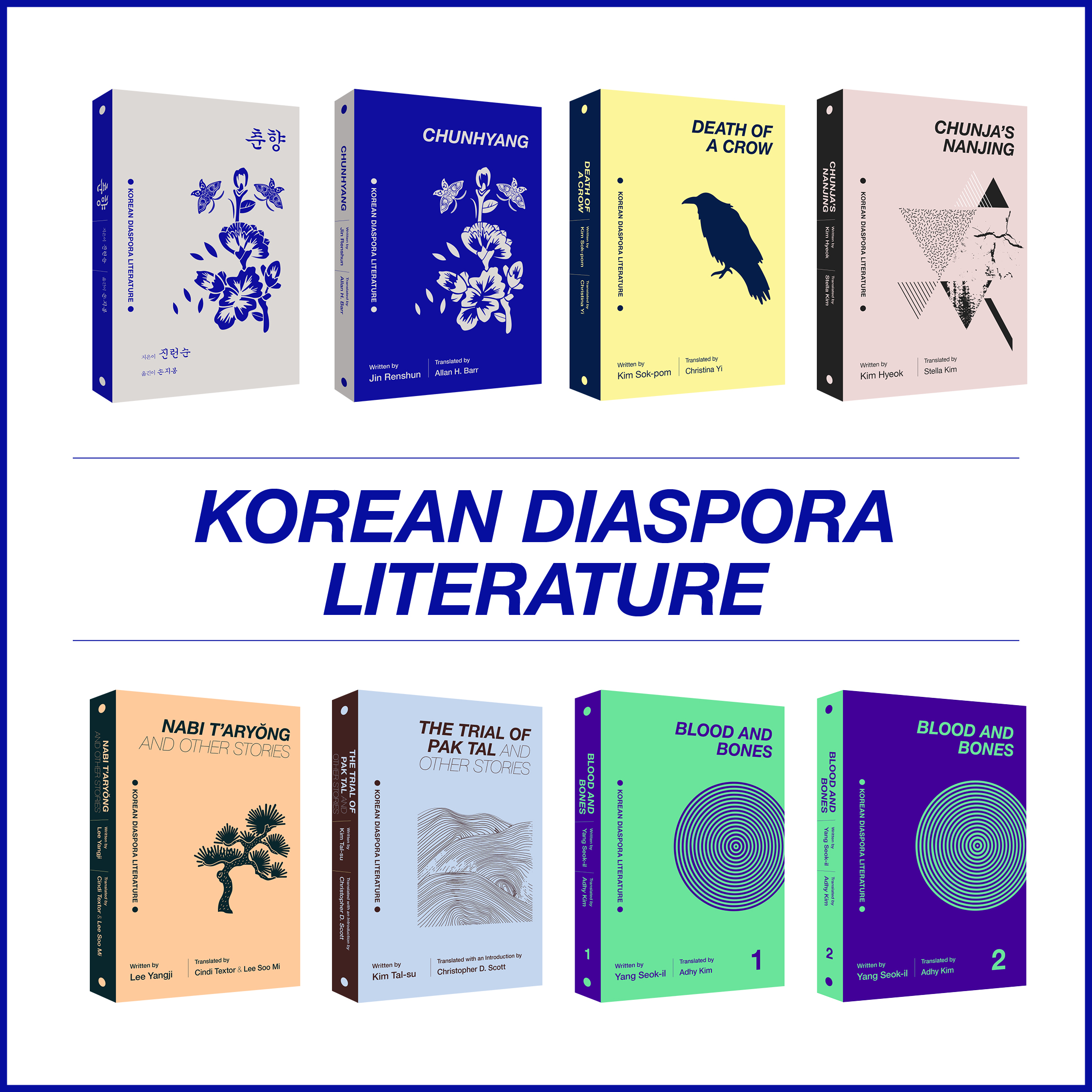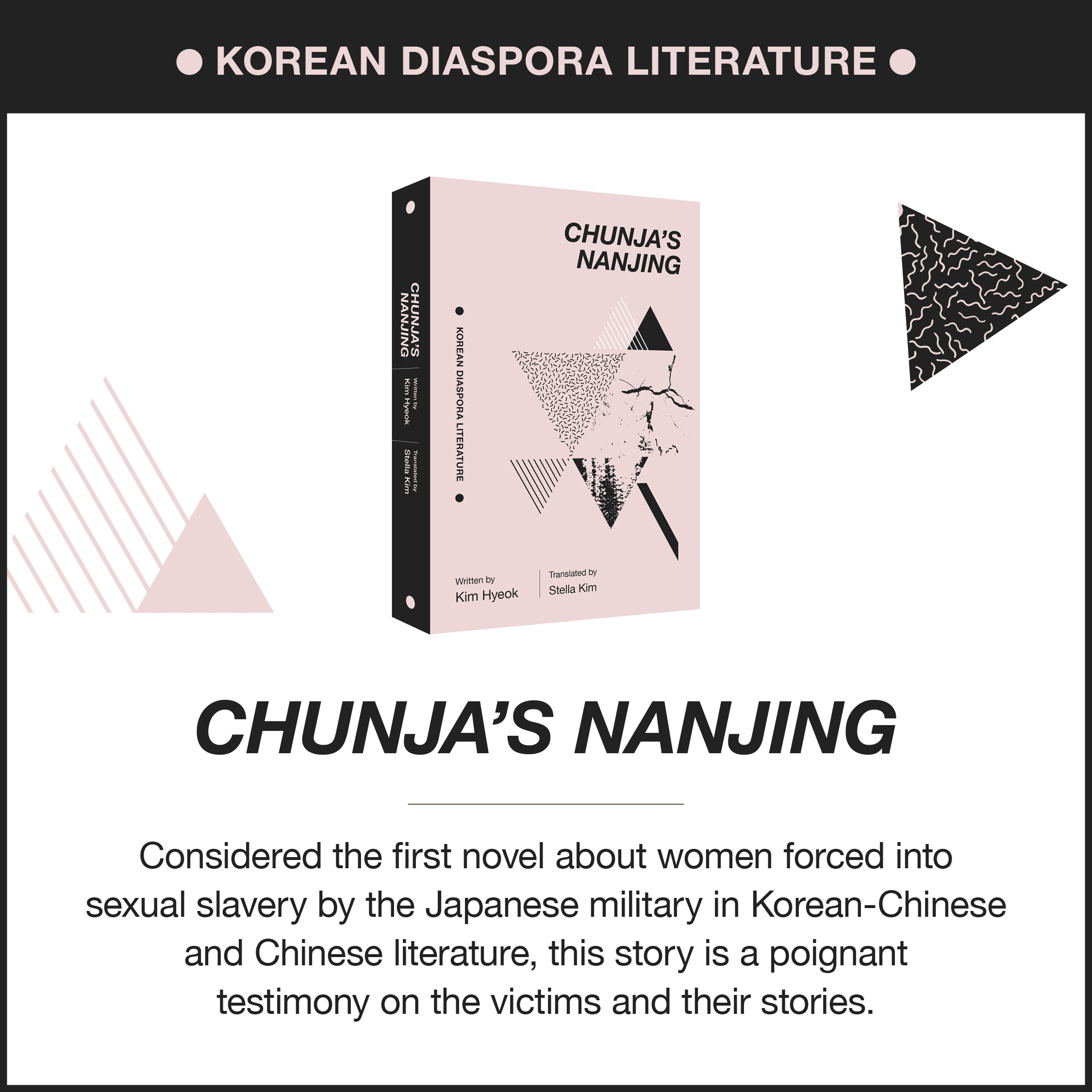

Chunja’s Nanjing explores in depth the tragic events of the 1930s dubbed the “Tragedy in Deer Valley” in Jiandao, a historical border region along the north bank of the Tumen River in China's Jilin Province with many ethnic Koreans, in the beginning of the novel and the “Rape of Nanjing” in Nanjing, China, at the end. The novel also discusses the plight of women forced into sexual slavery by the Japanese imperial army before and after World War II. Though a novel, this book intertwines the truth and pain of the past to create a story based on historical materials such as statements from Chinese women forced into sexual slavery by Japan, archival documents about the relevant incidents, and a variety of reports. Publisher’s Review How would you feel if you found out that your grandmother is a surviving “comfort woman”? When Jonghyeok, a Korean-Chinese student studying in Japan, falls in love with a Japanese girl named Haruko, he decides to introduce her to his grandmother, Chunja. Yet, upon his arrival at the small village in Yanbian, China, he finds his grandmother surrounded by reporters. He learns that she used to be a “comfort woman” who had been forced into sexual slavery for Japanese troops during World War II. Through Chunja’s retelling of her past experiences, Chunja’s Nanjing delineates violent historical injustices perpetrated by Japan against Koreans and Chinese in the border region of Gando (Jiandao) and in Nanjing. Yet, rather than simply dwelling on the tragic past, the book brings the issue of “comfort women” to the present through Jonghyeok and Haruko—the grandson of a Korean comfort woman and the granddaughter of a Japanese soldier who served in China during the war. It is through these two young people that the author offers a glimpse of hope for reflection and reconciliation as they come to understand each other’s pain and search for a way to move forward. Chunja’s Nanjing is an artistic journey that takes the readers through a powerful testimony about the appalling treatment of Korean “comfort women” during the war and the possibility of a new peace and resolution in Northeast Asia. About the Author Kim Hyeok Born in Longjing in China's Jilin Province in 1965, Kim Hyeok made his literary debut in 1985 with the short stories “Descendants of Pygmy” and “Noah’s Ark.” A former reporter for major newspapers such as The Yanbian Daily, he has published an array of works including the novels Pox Pustules Bloom in the Shade, Women on Juzi Street, Poet, Empress Wanrong, Chunja’s Nanjing, and Silent Age; the short story collections To Kill a Genius and The Bridge of the Other Shore; a compilation of serialized columns titled The Yun Dong-ju Code; biographies such as Standing on the Silk Road: A Biography of Han Nak-yeon, and Salt Flowers: A Biography of Kang Kyeong-ae; and the full-length reportages Tall Pine Tree in Yisongting and Blue Water of the Hailan River and Reading Chinese-Koreans Through Films. A member of the China Writers Association, Kim founded the Yun Dong-ju Research Society of Longjing after returning to his hometown and is now president of the organization. He is also working on the 12-part epic novel Garam, which is set in Northeast Asia over a period of 100 years.
About the Translator Stella Kim is a Korean-American translator and interpreter who won the 2014 Literature Translation Institute Korea Award for Aspiring Translators and the 2016 Korea Times’ Modern Korean Literature Translation Award. She has translated works like Launch Something! by Bae Myung-hoon (Honford Star, 2022) and Painter of the Wind by Lee Jung-myung (co-translated, Harriett Press, 2023), as well as short stories and excerpts published in ASIA, Asia Literary Review, Asymptote Journal, Korean Literature Now, and other publications. Contents Part I Botchan Karakuri Clock A Testimony in Spring A Tragedy in Deer Valley Flower Grave A Hymn on a Moonlit Night Part II Into the Tunnel Factory Girl Recruitment Khaki-Colored Terror A Party in Hell The Fiery Lake of Burning Sulfur A Pipe That Couldn’t Be Played Blood Rain Part III Haruko’s Nanjing Cats Cry for Spring Monochrome Memories A Sturdy Pipe Our Time Endnotes |